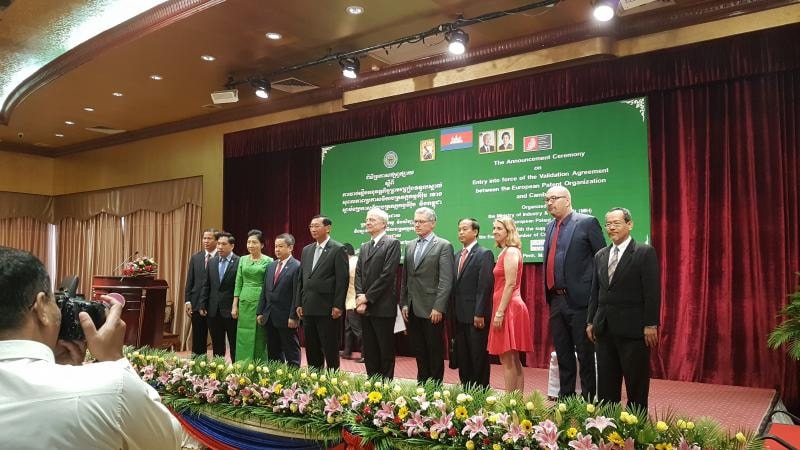From 1 March 2018, Cambodia will join Morocco, the Republic of Moldova, and Tunisia as an available validation state for European patent applications.
Validation in Cambodia will be possible for all European applications filed after that date.
What is a validation state?
A validation state is a non-contracting state to the European Patent Convention (EPC) that has entered into a validation agreement with the European Patent Office (EPO). The first validation agreement (with Moldova) took effect in 2015.
A validation agreement enables the validation of European patent applications in a validation state. After validation, the resulting patent will confer in the validation state essentially the same protection as patents granted by the EPO in contracting states to the EPC. As is evident, validation agreements are not limited to European countries.
How can I choose to validate a European patent application in a validation state?
The EPO validation system is largely the same as the designation system for contracting states to the EPC, although separate validation fees are payable if an applicant wishes to pursue the option of validation in any of the validation states. The period for payment of the validation fee is the same as the period for payment of the designation fee for contracting states to the EPC. Following grant, the relevant national validation requirements will need to be met.
Limitations: pharmaceutical products
As the validation system is based on the relevant national law modeled on the EPC, rather than on direct application of the EPC, it is subject to the national validation rules of the country concerned.
It is important to note that, under the Law on Patents in force in Cambodia, pharmaceutical products are excluded from patent protection. Cambodia benefits from the World Trade Organisation waiver allowing Least Developed Countries (LDCs) to avoid granting and enforcing IP rights on pharmaceutical products until 2033. This waiver would also apply to European patents providing protection for pharmaceutical products, for which validation is sought in Cambodia.
Applicants can, however, benefit under Article 70.8 TRIPS from what is known as a ‘mailbox system’. Under the ‘mailbox system’, Cambodian legislation authorizes the filing of patent applications for pharmaceutical products, despite the fact that they are excluded from patent protection. These national applications will not be examined as to their patentability until the end of the transitional period. Following that period, protection may be granted for the remainder of the patent term, calculated from the filing date of the application.
